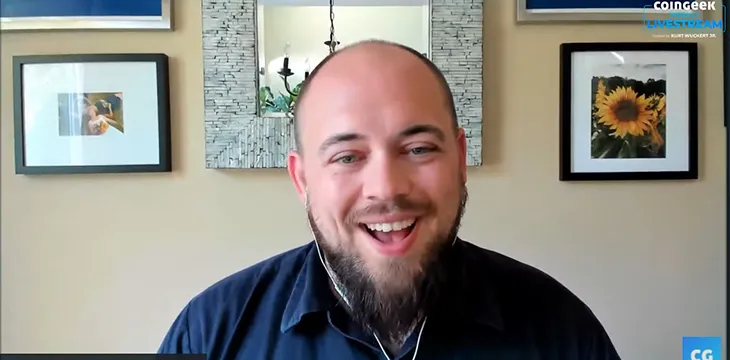|
Getting your Trinity Audio player ready...
|
Broadcasting live from the windy city of Chicago, Kurt Wuckert Jr. returns to CoinGeek Weekly Livestream with an ‘Ask Me Anything’ episode. Kurt opens the show with a timely discussion on the malicious attack on the BSV network in July. As he points out, what happened there is what people incorrectly call a 51% attack but is really a reorganization attack:
“A malicious miner was privately mining on chain, so they were mining blocks, but they were not broadcasting the blocks to the public network, they were waiting until the chain tip was ahead of the publicly available chain tip… but by not broadcasting and waiting to accumulate a chain tip that was a little bit longer and then also had more proof of work than the public tip, what they do is they then push that chain onto the network with some malicious double spends associated to it.”
It’s good to note that the attacker lost hundreds and thousands of dollars while attempting to double spend on the BSV network. As Kurt explains, orphaned nodes resulted from the ‘reorg’—an action taken by the network in response to a ‘bad signal’ detected by the honest nodes. In the end, he says, BSV pulled through.
“We survived the attack because 51% attacks just plainly don’t exist because we have honest nodes that are working together and providing proof of work which allows the other nodes to trust each other,” Kurt said.
To triumph, all things must first take a slump—a case in point due to the fact that barely a week after the attack, two 1GB blocks containing over 10,000 transactions each, were successfully mined on the BSV network.
“I mean, think about that, a gigabyte. This is a thousand times more data in a ten-minute period than can even conceivably be done on BTC.”
A discussion on BSV’s store of value commenced thereafter, to which Kurt points out the practicality of having a dependable tool on hand. He adds, that unlike BTC, BSV is an economic tool that can function properly under extreme pressure.
“If the economy collapses, it’s not about whether you have a great store of value and your earning good interest or dividends or whatever else or the hash power that you can accumulate. What matters is, can you pay your bills? Can you buy coffee and milk and drinkable water and meat and bread and whatever else you consume, are you going to be able to convert any of your money into something that is useful in the real economy?”
As for those who want to go in for speculative investment, Kurt suggests getting all 56 versions of bitcoins. He stated that every good investor is passive and would likely seek to mitigate risk. However, for those who wish to build businesses and create value, he notes that only one blockchain is fully capable.
“If you’re an entrepreneur, if you’re a builder, if you’re somebody that needs tools in order to create value.. BSV is the only thing that actually works as fuel to create wealth, not just absorb wealth, but create wealth.”

 08-03-2025
08-03-2025 





